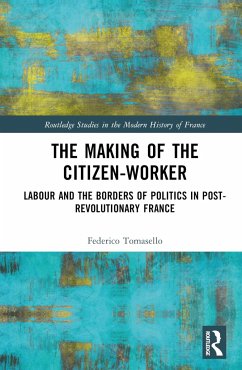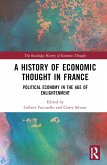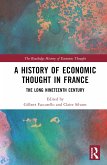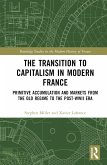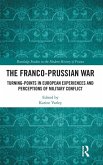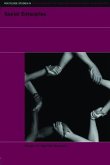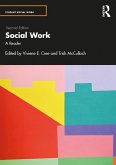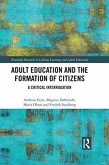Over the course of the 19th century, European societies started thinking of themselves as "civilisations of work." In the wake of the political and industrial revolutions, labour as a human activity and condition gradually came to embody a general principle of order, progress, and governance. How did work become so central to our systems of citizenship and social recognition?
The book addresses this question by considering the French context in the long transition between the 1789 and 1848 revolutions and focusing on a specific "fragment" of history in the early 1830s marked by a pandemic crisis and the first consequences of industrialisation. It combines the analysis of both political institutions and social movements to retrace the rise of a labour-based social contract revolving around the "citizen-worker" as the quintessential subject of rights.
The first part of the book highlights the role played by the genesis of the modern social sciences and analyses itas a political process that established work as an "object" of governance and scientific investigation, thus fostering pioneering measures of welfare centred on work conditions. The second part focuses on the emergence of the concept of "working class" and the modern labour movement, which structured the world of work as a collective political "subject."
Chapter 2 of this book is freely available as a downloadable Open Access PDF at http://www.taylorfrancis.com under a Creative Commons Attribution-Non Commercial-No Derivatives (CC-BY-NC-ND) 4.0 license.
The book addresses this question by considering the French context in the long transition between the 1789 and 1848 revolutions and focusing on a specific "fragment" of history in the early 1830s marked by a pandemic crisis and the first consequences of industrialisation. It combines the analysis of both political institutions and social movements to retrace the rise of a labour-based social contract revolving around the "citizen-worker" as the quintessential subject of rights.
The first part of the book highlights the role played by the genesis of the modern social sciences and analyses itas a political process that established work as an "object" of governance and scientific investigation, thus fostering pioneering measures of welfare centred on work conditions. The second part focuses on the emergence of the concept of "working class" and the modern labour movement, which structured the world of work as a collective political "subject."
Chapter 2 of this book is freely available as a downloadable Open Access PDF at http://www.taylorfrancis.com under a Creative Commons Attribution-Non Commercial-No Derivatives (CC-BY-NC-ND) 4.0 license.

